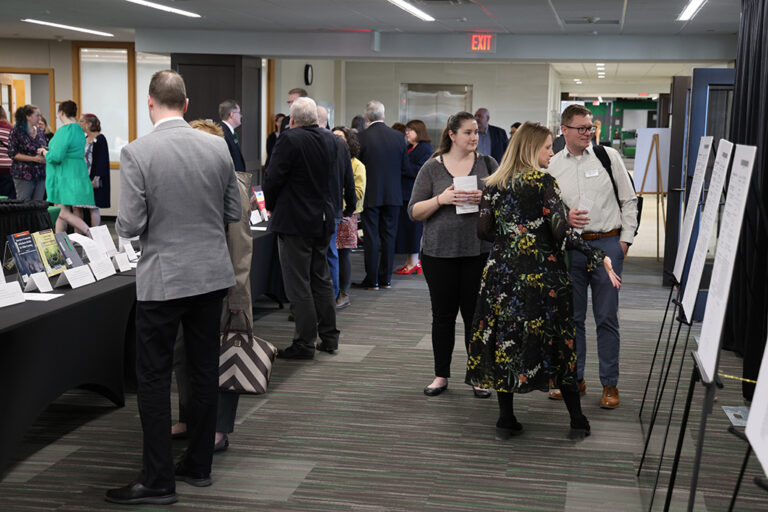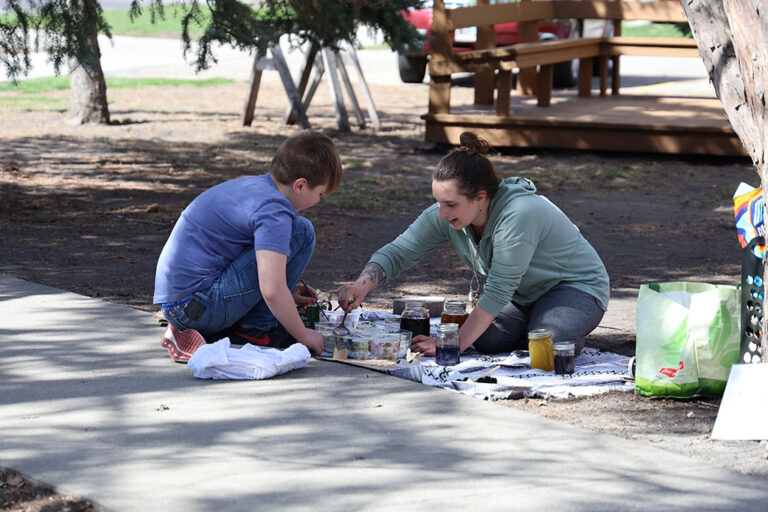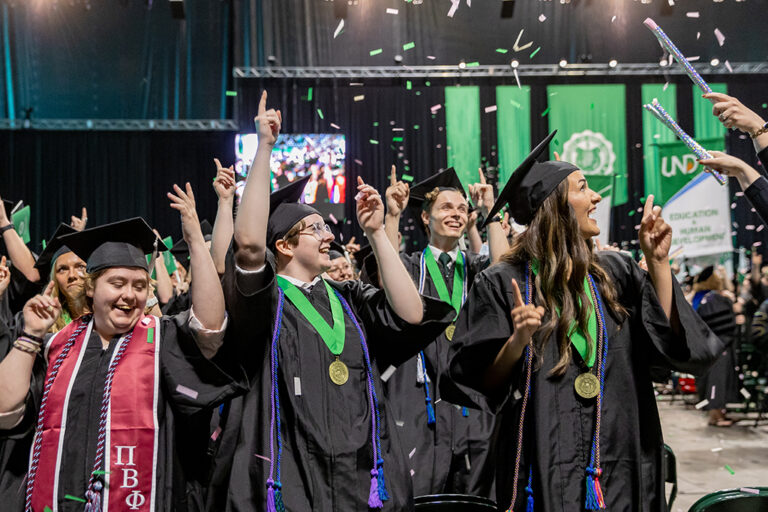Prescriptions from the sky
UND’s partnership with Three Affiliated Tribes lays groundwork for drone deliveries of medicine, medical equipment

UND is participating in a U.S. Department of Transportation grant to use drones to deliver medicines and medical supplies for members of the Three Affiliated Tribes in western North Dakota.
The undertaking, called MHA Nation Drone Project: Planning and Protocol Development, was first announced on March 15 in a news release from Sen. Kevin Cramer, R-N.D. The project makes available nearly $2 million to conduct demonstration projects focused on improving the efficiency of transporting medicines.
The grant is part of a larger DOT initiative called the Strengthening Mobility and Revolutionizing Transportation (SMART) Grants Program, which was created after the passing of the Bipartisan Infrastructure Law (BIL). The BIL authorized $100 million for state, local and tribal governments to conduct demonstration projects focused on advanced smart city or community technologies and systems to improve transportation efficiency and safety. The project was funded due to the focus on using technology interventions to solve real-world challenges facing communities today, including improving access to life saving medications in remote tribal lands.
Kerry Hartman, academic dean and chair of environmental science at Nueta Hidatsa Sahnish College, is acting as the principal investigator for the grant program, while UND will lend its expertise in Aerospace. Together, the two institutions will work to identify additional use cases for drones, alongside medical deliveries.
The grant builds upon previous drone delivery work conducted by UND, the Northern Plains UAS Test Site and others, in coordination with the Mandan, Hidatsa and Arikara Nation, the Nueta Hidatsa Sahnish College, and Elbowoods Memorial Health Center, the clinic for the MHA Nation.
In this most recent undertaking, research on using drones for medical deliveries will continue, and there is an added workforce development component designed to help Indigenous youth become interested in careers in the Science, Technology, Engineering and Mathematics fields.
“The bipartisan Infrastructure Investment and Jobs Act has delivered significant results for North Dakota,” said Cramer. “This grant builds on North Dakota’s leadership in unmanned vehicles and will improve access to medical care for tribal communities in the short-term, support implementation of advanced technologies, and engage numerous organizations across our state, including the University of North Dakota.”
Sen. John Hoeven, R-N.D., said North Dakota continues to be a leader in unmanned aerial vehicles by finding innovative uses for the technology.
“We were able to achieve this through the many partnerships we’ve built,” said Hoeven. “This grant continues these efforts, supporting a project between UND, Nueta Hidatsa Sahnish College, the Northern Plains UAS Test Site and others that will develop and demonstrate the ability of unmanned aircraft to support medical care, including through the delivery of needed equipment.”
Twyla Baker, president of the NHS College, said innovation, exploration, and experimentation are all traditional values of the Three Affiliated Tribes. She said she is looking forward to deepening partnerships between her college and other entities across the state.
“I’m really excited about it, because it starts to look at a lot of the problems or the issues that we as rural residents experience and trying to come up with innovative ways to address them,” Baker said.
In particular, Baker said she is pleased that children in the tribal Boys and Girls Clubs will have the opportunity to engage in a drone camp. Thomasine Heitkamp, research developer in the office of the Vice President for Research & Economic Development at UND, said the camps will aim to foster an interest in aeronautics for the clubs’ members.
“This is the coolest thing I’ve ever done,” said Heitkamp, on helping to set up the drone camp.

Mark Askelson, associate vice president for national security initiatives at UND, and vice president for research and economic development, said he is pleased to be involved in the project. He said NHS College is a valuable partner, and that working with the college to identify problems and collectively find solutions is rewarding.
“After a lot of people doing a lot of work, we’re starting to see the benefit to the point where we can be deploying these technologies and these capabilities that really do make a difference in people’s lives,” he said. “That’s exciting stuff.”
Askelson said several entities both inside and outside of UND made the proposal for the grant possible. Those entities include MHA Nation; the Northern Plains UAS Test Site; aerospace and electrical systems giant Thales Group and Airspace Link, a company working toward the safe integration of drones in the nation’s airspace.
At UND, the Research Institute for Autonomous Systems (RIAS), the Institute of Policy and Business Analytics (IPBA) and the Office of the VP for Research & Economic Development (VPRED) were involved in the grant proposal.
“We could not have made this happen without our tremendous external partners and without the capabilities and partnerships within UND,” Askelson said.
Much of the work for the grant will take place in and around New Town, N.D. The geography of the MHA Nation is such that travel to needed services is difficult and time consuming. The Nation is bisected by the Missouri river (Lake Sakakawea), and a one-mile-long bridge connects six segments of the region. But the lone bridge only complicates travel for medical needs.



